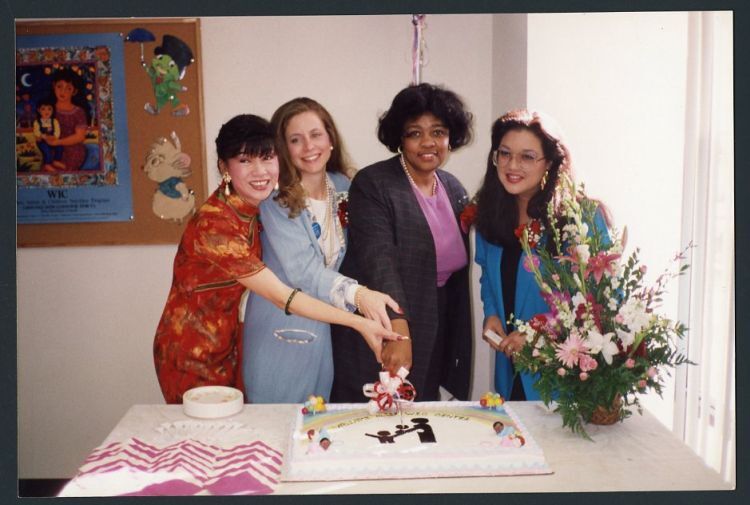Glenda Joe
Born in Houston in 1954, Glenda Joe began her career in community organizing at the young age of 13 when she organized her first civil rights rally. Ever since, she has been a prominent and pivotal activist for the Asian-American community in Houston, Texas. The work that she began doing at such a young age was, and still is, genuinely foundational for the prominence and wellness of the Asian-American community in Houston. She worked as a consultant for Asian issues with the Houston Police Department, wrote the Asian Merchant’s Handbook that provided information and support for reducing interracial conflict in the increasingly diversifying Black and Asian neighborhoods, and investigated hate crimes against Asians people in the local community.
She also created a business, Great Wall Enterprises, which functions as support for Asian-Americans by advertising public awareness campaigns, like raising awareness for immunizations, voting, and census participation, targeted towards Asian people, particularly recent immigrants. In 1991, she became the first Asian-American, and the first Asian-American woman, to run for Houston City Council, which she did not win, but this did not deter her investment in the city of Houston and the communities that make up the city.
In 1980, at the age of 26, Joe became involved with The Houston Asian American Festival Association, of which she eventually became the executive director. According to Glenda Joe: “HAAFA was organized in response to President Jimmy Carter’s first proclamation of Asian Pacific American Heritage Week in 1980. It was the first time Asians from all ethnicities convened to work for common cause in Houston. It was the catalyst for pan-Asian organizing around other civic and social issues affecting all Asians in Houston.” This became a space for pan-Asian solidarity and a space for celebration of the multitude of cultures and identities that construct the Asian diaspora. This celebration became the space in which Asian identity and culture could be understood as normal, especially in Asian femininity which was exoticized in American culture, which has been an ongoing, racist imagination in America since the 1800s.
Joe was a pivotal force in normalizing Asian femininity both in a social context but also in a leadership context. She was a force within community organizing circles across Houston. In the exhibition you are able to see how she navigated interracial and interethnic community difficulties and constantly advocated for harmonious coexistence. She demonstrated the ability to bridge the gaps between drastically different experiences, yet both difficult experiences, of Black communities, Asian communities, and Hispanic communities. Joe actively made space and served as a model for solidarity, especially in interracial femininity: a feat that undergirds this entire exhibition.
